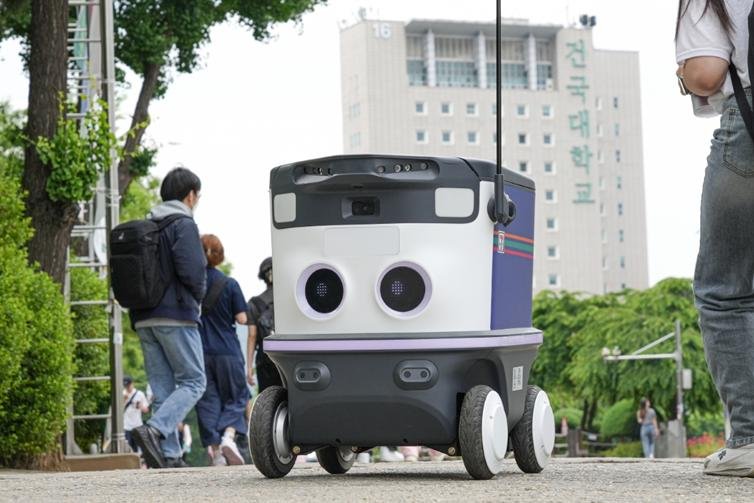A South Korean delivery robot, named Neubi, is on the road for a test run in eastern Seoul. The pilot run will continue through October. Photo courtesy of 7-Eleven
SEOUL, June 20 (UPI) -- Global convenience store giant 7-Eleven has begun a test run of a robot delivery service in South Korea in conjunction with Neubility, a South Korean startup.
7-Eleven said that the test will run through October at two locations, one near Konkuk University in eastern Seoul and the other in southern Seoul.
Konkuk University location customers can order food or products from about 10 nearby restaurants and stores to be delivered to the convenience store, paying just 78 cents as delivery fee.
At the store located in southern Seoul, shoppers can order items from 7-Eleven through a dedicated app to be delivered to their homes also for 78 cents.
The robots are equipped with a self-driving system and sensors, which enable them to avoid obstacles and navigate through urban environments in all weather.
People are prompted automatically via mobile message to pick up their orders when the robot nears its destination.
A total of eight robots, named Neubies, have been allocated for the job -- five in eastern Seoul and three in southern Seoul, according to 7-Eleven.
Neubility is a startup founded in 2017. It has received $23 million in investment since inception, mostly from Samsung affiliates, including Samsung Electronics.
7-Eleven had pilot runs of robotic delivery systems in 2021 and 2022 and tested a drone delivery service last year.
"Technologically speaking, robotic delivery services are already possible. Before their commercial launch, however, there are many regulatory hurdles, which need to be dealt with," Daelim University automotive Professor Kim Pil-soo told UPI News Korea.
"As such, when delivery robots can be in full-fledged operational mode is uncertain. Eventually, though, the service will become mainstream, perhaps even in the not-so-distant future," he said.















